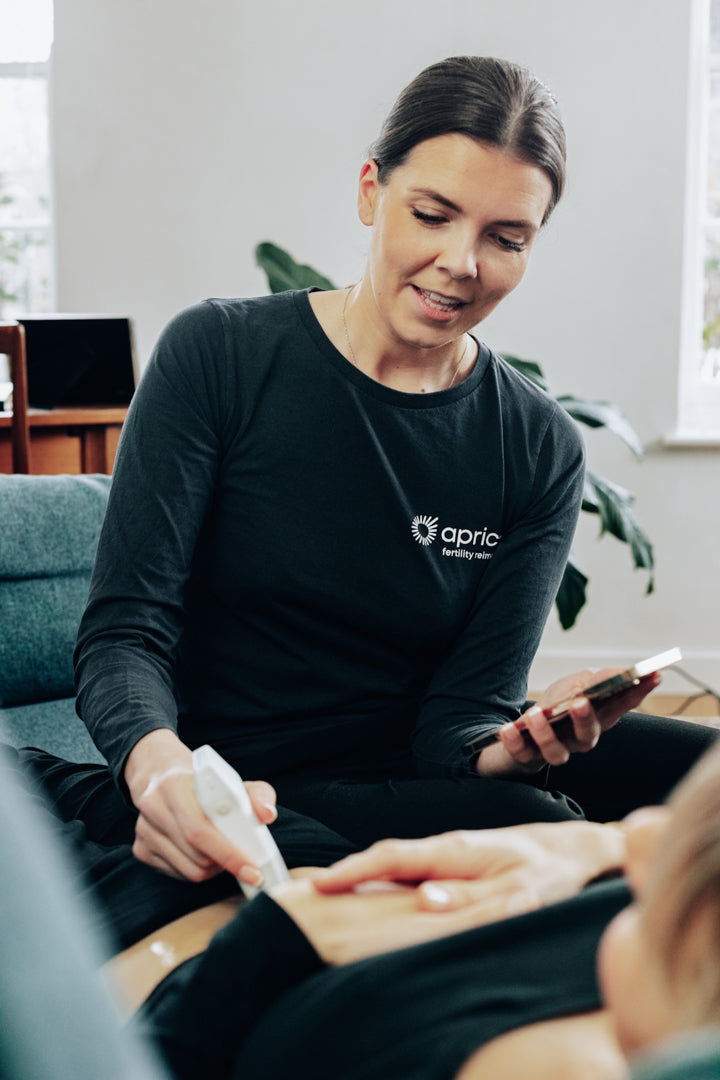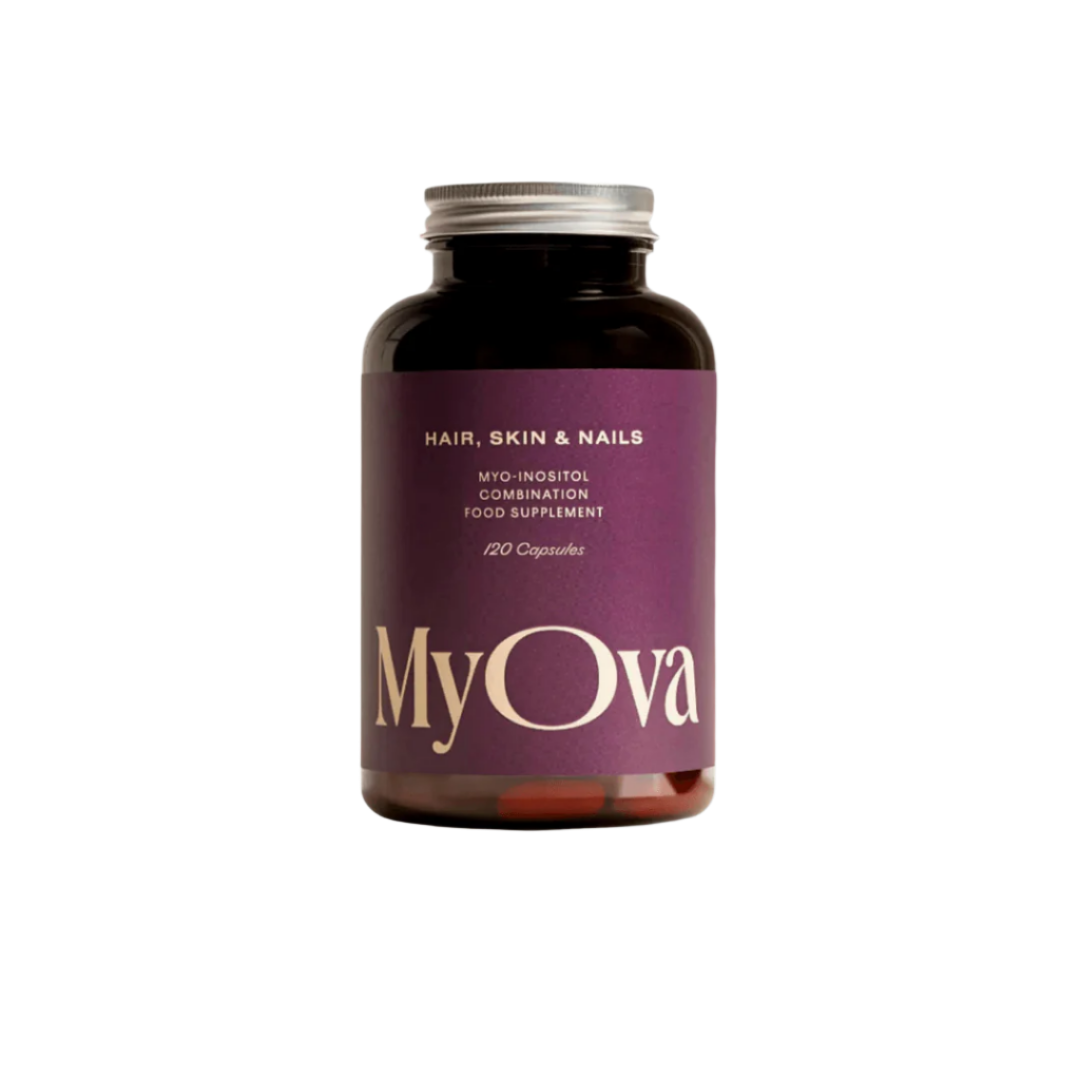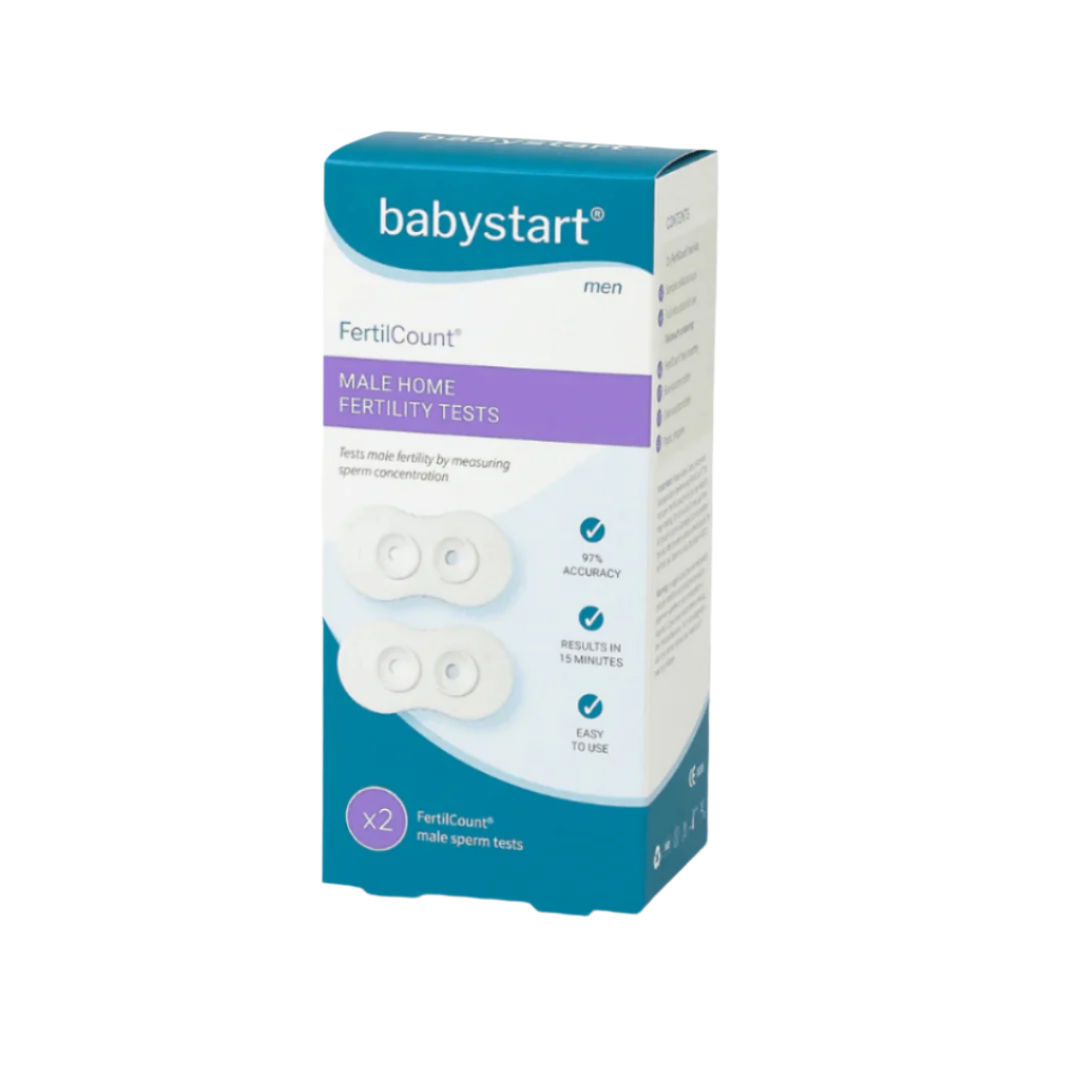The Journal
Coping with Christmas and Uncomfortable Questions About Your Fertility
The holiday season is a time of joy, togetherness, and celebration, but for many navigating fertility challenges, it can bring up difficult emotions and awkward conversations. Family gatherings often come with well-meaning but intrusive questions, and festive cheer can sometimes amplify feelings of isolation or pressure. Here’s how to protect your peace, handle tricky questions, and prioritise your emotional well-being during Christmas. Why Christmas Can Be Especially Hard For those facing fertility struggles, the holidays can feel like a spotlight is shining on what’s missing. The festive season often revolves around family and children, from school nativity plays to stories of "first Christmases." It’s natural to feel overwhelmed when conversations drift to topics like parenthood, pregnancy announcements, or plans for the future. Top Tips for Coping During Christmas Set Boundaries in Advance It’s perfectly okay to decide which gatherings you’ll attend and how long you’ll stay. Think about what environments will support your mental health and make plans accordingly. Communicate Clearly: Let family members know ahead of time if certain topics are off-limits. A polite but firm "I’d rather not discuss that, thank you," can go a long way. Have an Exit Plan: If conversations take a turn, excuse yourself for a quick walk, or designate a safe space where you can take a breather. Rehearse responses to tricky questions It’s not uncommon for well-meaning relatives to ask, “When are you having kids?” or “Isn’t it time for a little one?” Direct Responses: “That’s a personal topic, and I’d prefer to keep it private.” Humorous Deflections: “We’re focusing on surviving Christmas dinner first!” Change the Subject: Quickly shift focus by asking about their plans or sharing a light-hearted anecdote. Lean on your support network You don’t have to navigate the season alone. Whether it’s your partner, close friends, or an online community, share your feelings with people who understand. Buddy System: Attend gatherings with someone who knows your situation and can step in if conversations become too intrusive. Therapeutic Outlets: Journaling or speaking with a therapist can help process complex emotions. Practice self-care During a season full of giving, don’t forget to give yourself some grace and love. Schedule “You Time”: Take breaks for activities that bring you joy—whether it’s a walk in nature, a bubble bath, or a good book. Mindfulness Techniques: Practice deep breathing, meditation, or yoga to stay grounded. Writing a journal can really help. Limit Social Media: Curate your feeds to avoid potentially triggering posts, such as pregnancy announcements or family holiday photos. If you are actively trying to conceive, prioritising your reproductive health can bring a sense of empowerment. Exploring fertility support products can help you take proactive steps towards your journey. Whether it's supplements, ovulation trackers, or hormone balance aids, these products can provide additional reassurance and support. Celebrate your way There’s no rulebook for how to do Christmas. Create traditions that bring you happiness, even if they don’t involve children. Travel: Escape the usual routine by going on a holiday. Host Friends: Plan a festive gathering with others who may feel out of place during family-centric celebrations. Give Back: Volunteering or donating to causes you care about can be deeply fulfilling. A Final Word Remember, your feelings are valid, and your journey is your own. Coping with fertility challenges during Christmas may not be easy, but with the right tools and boundaries, you can create a season that feels a little more manageable. Take things one day at a time, focus on what brings you peace, and don’t hesitate to prioritise yourself.
Learn moreSecondary Infertility: Navigating the Journey of Conceiving Again by Apricity Fertility
Secondary Infertility: Navigating the Journey of Conceiving Again You've felt the joy of welcoming a child into your life—the first smile, the tiny fingers gripping yours, the milestones that fill your heart with pride. As your family grows, so does your dream of giving your child a sibling. But what happens when that dream is met with unexpected silence? When months turn into years of hoping, only to face the profound disappointment of a negative pregnancy test again and again? This is the hidden struggle of secondary infertility, a journey shrouded in confusion, isolation and heartache. While some couples conceive effortlessly, others face unexpected hurdles. Secondary infertility—the inability to conceive or carry a pregnancy to term after previously giving birth—is more common than people realise, affecting around 5% of the population, according to the NHS. Secondary infertility occurs when a couple has had one or more children previously, but now struggles to conceive without the use of fertility treatments. It's easy to assume that if you've had a child before, conceiving again should be straightforward. However, numerous factors can make subsequent pregnancies more challenging. Age, health conditions, and lifestyle changes can all impact your fertility. Common Causes of Secondary Infertility The causes of secondary infertility mirror those of primary infertility and can affect any stage of the conception process: Maternal age Fertility naturally declines after age 35. As women and those assigned female at birth age, both the quantity and quality of their eggs diminish. Male factor infertility Impaired sperm production or low sperm count can significantly affect the chances of conception. Ovulation disorders Conditions like Polycystic Ovary Syndrome (PCOS) can disrupt regular ovulation. Uterine or tubal issues Blocked or damaged fallopian tubes, often due to conditions like endometriosis or pelvic inflammatory disease, can prevent fertilisation. Lifestyle factors Excessive weight gain or loss, smoking, alcohol use, and stress can all impact fertility. For more detailed information on causes and treatments, read Apricity Fertility's page on secondary infertility. Why Is Secondary Infertility Primarily Privately Funded? Access to fertility treatments in the UK is often limited, especially for those experiencing secondary infertility. NICE guidelines recommend that women under 40 be offered three cycles of IVF on the NHS. However, local Clinical Commissioning Groups (CCGs) frequently impose additional criteria, such as not already having a child, effectively excluding many couples with secondary infertility from publicly funded treatment. This policy means that many couples must turn to private clinics, shouldering costs that can range from £5,000 to £10,000 per cycle. The financial strain can be immense, disproportionately affecting lower-income families and widening socio-economic disparities in access to fertility care. Private fertility services like Apricity Fertility offer innovative solutions to make treatments more accessible. By utilising technology and personalised care plans, they aim to reduce costs and improve success rates. Psychological and Mental Health: The Emotional Toll of Secondary Infertility The journey through secondary infertility is often fraught with complex emotions. Couples may often feel: Isolation, as friends and family often assume that having one child should be enough, leading to a lack of understanding and support. Guilt and shame, as parents may feel guilty for wanting another child or believe they are somehow at fault for their fertility struggles. Jealousy and sadness, as seeing others expand their families can trigger complex feelings in those struggling. A strain on their relationships, as stress can lead to tension between partners, affecting communication and intimacy. These emotional challenges are common and valid. Seeking support from mental health professionals specialising in fertility struggles can provide coping mechanisms and emotional relief. Support groups offer a safe space to share experiences and feelings with others who understand the journey. Seeking Support and Treatment Options Acknowledging the struggle is the first step toward finding a solution. Medical advancements offer various treatment options: Medication: drugs like Clomifene and Letrozole can stimulate ovulation. Surgery: procedures to repair blocked fallopian tubes or remove uterine fibroids. Assisted Reproductive Technologies (ART): options like IVF and IUI can assist in conception. Lifestyle changes: improving diet, reducing stress, and eliminating harmful habits can enhance your natural fertility levels. For those unable to access NHS-funded treatments, private clinics often provide alternative, and sometimes the only, pathways. Our partners at Apricity Fertility offer personalised treatment plans that focus on digital support to reduce the number of in-person journeys to a clinic from 10 to two, as well as offer transparent pricing and emotional support services to guide you through your unique fertility journey. What Not to Say to Someone Experiencing Secondary Infertility When someone is facing secondary infertility, well-intentioned comments can inadvertently cause pain. Here are some phrases to avoid: "At least you have one child." This minimises their current struggle and invalidates their feelings. "You should be grateful for what you have." Gratitude doesn't negate the desire to grow one's family. "Maybe it's not meant to be." Such fatalistic statements can be dismissive and hurtful. "Just relax and it will happen." Infertility is a medical condition, not a state of mind. Instead, you can offer support by saying: "I'm here for you if you want to talk." "I can't imagine how tough this is for you." "Is there anything I can do to help?" Final Thoughts Secondary infertility is a complex and often misunderstood experience. It's essential to recognise that your feelings are valid and that support is available. Open communication with your partner, seeking professional help, and connecting with support networks can make this journey more manageable. Remember, many have walked this path and found solace and success. With the right support and resources, you too can navigate the challenges of secondary infertility. See how Apricity Fertility can support you - book a free call at www.apricityfertility.com Remember, many have walked this path and found solace and success. With the right support and resources, you too can navigate the challenges of secondary infertility. See how Apricity Fertility can support you - book a free call at www.apricityfertility.com
Learn moreTempdrop Fertility Monitor: Why It’s the Best Choice for Tracking Your Cycle
In this blog, we’ll explore what makes Tempdrop unique, how it compares to other fertility monitors, and why it’s quickly becoming a top choice for women seeking accurate, reliable, and hassle-free cycle tracking.
Learn moreEmbracing Hygge to Thrive Through the Winter Months
Discover how the Danish concept of hygge can help you find warmth, comfort, and joy during winter. Learn simple tips to embrace cosiness and well-being as the days get colder.
Learn moreBenefits of Seed Cycling for Fertility
Seed Cycling for Fertility: A Natural Approach to Hormonal BalanceSeed cycling has become a popular method for those looking to support hormonal balance and boost fertility naturally. This simple practice involves consuming specific types of seeds at different phases of the menstrual cycle, aiming to support the body’s natural hormone rhythms. In this article, we’ll dive into the details of seed cycling, its potential fertility benefits, and how you can get started. What is Seed Cycling? Seed cycling is a holistic practice that aligns seed consumption with different phases of the menstrual cycle. The goal is to balance estrogen and progesterone levels by eating seeds rich in nutrients that support these hormones at specific times.The menstrual cycle is divided into two main phases:- Follicular Phase (Days 1-14): From the first day of menstruation to ovulation.- Luteal Phase (Days 15-28): From ovulation to the start of the next period.In each phase, different seeds are consumed to support hormone production and balance:- Follicular Phase: Flaxseeds and pumpkin seeds are consumed.- Luteal Phase: Sesame seeds and sunflower seeds are recommended.How Does Seed Cycling Work?Each type of seed provides nutrients that can promote hormone health: - Flaxseeds: Rich in lignans, which are compounds that can help regulate estrogen levels. Lignans may bind to excess estrogen in the body, helping to balance estrogen levels during the follicular phase. - Pumpkin Seeds: High in zinc, which plays a role in preparing the body for ovulation. Zinc is also essential for hormone production, making it beneficial for egg health and ovulation. - Sesame Seeds: Also high in lignans, these seeds are consumed in the luteal phase to help support progesterone production. Progesterone is crucial for supporting a potential pregnancy and regulating menstrual cycles. - Sunflower Seeds: Packed with selenium, an antioxidant that can help detoxify the liver, assisting the body in processing hormones. Sunflower seeds also contain vitamin E, which is essential for reproductive health.Benefits of Seed Cycling for FertilityWhile scientific research on seed cycling is still emerging, many people report experiencing positive effects on their hormonal health and menstrual cycle, which may have indirect benefits for fertility. Here are some of the ways seed cycling may support reproductive health:Promotes Hormonal BalanceSeed cycling can help balance estrogen and progesterone levels throughout the menstrual cycle, which is vital for healthy ovulation and conception. Balanced hormone levels may improve the chances of regular ovulation, a key factor in fertility.Supports Menstrual RegularityMany people find that seed cycling helps regulate their menstrual cycles, making it easier to track ovulation and fertility windows. Regular cycles can make it easier to time conception and increase the chances of pregnancy.Supports Egg HealthThe nutrients found in seeds, such as zinc, selenium, and vitamin E, are essential for maintaining the health of egg cells. Zinc, for example, is crucial for cell division and helps to prepare the body for ovulation. Selenium acts as an antioxidant, protecting egg cells from oxidative stress, which can affect fertility.Assists in DetoxificationFlaxseeds, in particular, have compounds that can help the liver metabolize excess estrogen. Since estrogen dominance can lead to hormonal imbalances, seed cycling may support healthy estrogen levels and help reduce symptoms associated with hormonal imbalance.Supports Overall Reproductive HealthEssential fatty acids, antioxidants, and vitamins found in seeds also promote a healthy reproductive system, which is important for successful conception. Vitamin E, for example, supports uterine lining health, which is necessary for a fertilized egg to implant.How to Start Seed Cycling for FertilitySeed cycling is easy to start and can be adapted to any diet. Here’s a quick guide to get you going:Step 1: Determine Your Cycle PhasesTrack your menstrual cycle to identify the follicular and luteal phases. If your cycle is irregular, consider starting with a basic 28-day cycle structure until your cycle becomes more regular:- Follicular Phase: Days 1-14 (Menstruation to Ovulation)- Luteal Phase: Days 15-28 (Ovulation to Start of Next Period)Step 2: Incorporate the Right Seeds in Each Phase- Follicular Phase (Days 1-14): - Consume 1 tablespoon each of ground flaxseeds and pumpkin seeds daily. - Add them to smoothies, oatmeal, salads, or yogurt for easy integration into your diet.- Luteal Phase (Days 15-28): - Consume 1 tablespoon each of ground sesame seeds and sunflower seeds daily. - Like with the follicular phase, you can mix the seeds into various foods for convenience.Step 3: Stick with It ConsistentlyConsistency is key with seed cycling, as it can take several months to see potential benefits. Aim to eat the recommended seeds daily during each phase.Practical Tips for Seed CyclingHere are some tips to make seed cycling a part of your daily routine:- Use Ground Seeds: Ground seeds are easier to digest and allow your body to absorb the nutrients more effectively.- Store Seeds Properly: To maintain their nutrient quality, store seeds in an airtight container in the fridge or freezer.- Add to Foods You Enjoy: Try incorporating seeds into meals and snacks you already eat regularly to make it easy to stick to the practice.- Be Patient: Like many natural approaches, seed cycling may take a few cycles to show noticeable benefits. Who Should Consider Seed Cycling?Seed cycling can be a gentle and natural way to support hormonal health for those experiencing:- Irregular menstrual cycles- Symptoms of hormonal imbalance, such as PMS, mood swings, or low energy- Issues with ovulation or conceptionWhile seed cycling is generally safe for most people, those with specific health concerns, such as hormonal disorders or food allergies, should consult a healthcare provider before starting.Frequently Asked Questions About Seed Cycling and Fertility 1. Can I start seed cycling if I don’t have a regular cycle? Yes! You can use the general 28-day cycle as a guide. Over time, seed cycling may help promote regularity in your menstrual cycle.2. How long does it take to see results with seed cycling?Most people start to notice changes within 2-3 months, but it may vary. Consistency is important for the best results.3. Can I practice seed cycling if I’m pregnant?If you’re pregnant, consult your healthcare provider before making dietary changes. Seed cycling is mainly beneficial for balancing hormones before conception.4. Is there any scientific evidence for seed cycling?While research on seed cycling specifically is limited, there is evidence that nutrients in seeds, such as zinc and lignans, can support hormone health, which may indirectly benefit fertility.Final Thoughts on Seed Cycling for FertilitySeed cycling is a gentle, food-based approach to support hormonal balance and may offer benefits for those seeking to improve their reproductive health naturally. By focusing on nutrient-rich seeds during specific phases of the menstrual cycle, seed cycling aims to support the body’s hormonal balance, which is essential for fertility and overall reproductive health.As with any dietary change, it’s a good idea to consult with a healthcare provider, especially if you have existing hormonal issues or are actively trying to conceive. Seed cycling, paired with a balanced diet and a healthy lifestyle, may provide natural support for your fertility journey. Thanks for reading our content, if you have found this to be beneficial then please share, femme.
Learn moreFertility Awareness Week: Embracing Passion and Hobbies to Support Your Mental Wellbeing
Fertility Awareness Week is an important time to acknowledge and bring attention to the journey of those trying to conceive. For many, the road to parenthood can be long and emotionally challenging, with numerous ups and downs. It’s during these times that prioritising mental wellbeing becomes crucial, and one powerful way to support emotional health is by finding joy, comfort, and release through passions and hobbies. Having an interest to dive into beyond fertility can be a life-enriching addition, helping ease stress, foster resilience, and bring balance to the journey. In this blog, we’ll explore the significance of Fertility Awareness Week and discuss how hobbies can provide an emotional lifeline for anyone navigating the complexities of fertility challenges. What is Fertility Awareness Week? Fertility Awareness Week is dedicated to raising awareness, breaking stigmas, and offering support to those dealing with infertility or struggling to conceive. It’s a time for educating the public, providing resources, and fostering a supportive community. With around one in six couples worldwide experiencing fertility issues, this week sheds light on a topic that can feel isolating for those going through it. By promoting conversation, sharing resources, and encouraging openness, Fertility Awareness Week aims to bring hope and understanding to a topic often shrouded in silence. Why Mental Wellbeing is Essential on the Fertility Journey The fertility journey can be emotionally taxing, filled with highs and lows, waiting periods, and a lot of uncertainty. Feelings of anxiety, sadness, frustration, and sometimes even isolation are common. Studies have shown that those facing infertility often experience stress levels comparable to those dealing with chronic illness. Therefore, it’s essential to nurture mental and emotional health throughout this process. One effective way to do so is by finding fulfilling activities that provide a sense of joy, distraction, and accomplishment. The Power of Hobbies and Passions During the Fertility Journey Engaging in hobbies or passions can be a wonderful, transformative way to find peace amidst the storm of fertility struggles. Here’s why hobbies can be so beneficial: 1. A Healthy Distraction Hobbies offer a break from the constant focus on fertility. When trying to conceive, it can be easy to become consumed by tracking cycles, managing appointments, and reading every piece of advice. A hobby creates a “time out” space, allowing you to shift your focus to something unrelated to fertility. Whether it’s painting, gardening, knitting, or hiking, engaging in a hobby helps bring moments of mental relief and respite. 2. A Way to Connect with Yourself and Others Infertility can sometimes feel like it defines you, but pursuing a hobby reminds you of the person you are beyond the journey. Finding joy in creative or physical outlets reconnects you with your strengths, talents, and sense of self-worth. Many hobbies, such as yoga or a book club, can also open up opportunities to connect with others who share similar interests. Social support is essential for mental wellbeing, and a hobby-centered community can provide meaningful connections and friendships outside of fertility-related concerns. 3. Reduces Stress and Anxiety Engaging in hobbies has been shown to lower cortisol levels (the stress hormone) and boost endorphins, the brain’s natural mood enhancers. Physical activities like running, dancing, or swimming can be excellent for stress relief, as can more meditative pursuits like painting, pottery, or journaling. These outlets provide a healthy way to channel emotions, reducing anxiety and offering a sense of calm and control. 4. Promotes Mindfulness and Presence Many hobbies, especially those involving art or nature, encourage mindfulness, a practice that promotes living in the present moment. Mindfulness can be especially beneficial during the fertility journey, as it helps reduce rumination and anxiety about the future. Practicing mindfulness through hobbies like cooking, gardening, or drawing can help you feel grounded and remind you to appreciate life beyond the realm of fertility. 5. Enhances Self-Esteem and Resilience Fertility challenges can take a toll on self-esteem, especially when faced with disappointment. A hobby provides an area where you can set goals, make progress, and experience success. Completing a piece of art, learning a new skill, or mastering a recipe can bring a sense of accomplishment and boost self-worth. These wins, no matter how small, reinforce resilience and confidence, reminding you of your capability to achieve things outside of the fertility journey. 6. Provides a Sense of Purpose and Fulfillment The journey to parenthood often brings up questions of purpose, and waiting or struggling with fertility can feel like time is passing without progress. Pursuing a passion brings purpose back into daily life, filling days with meaningful activities that feel enriching. This sense of fulfillment can help balance feelings of frustration or impatience. Ideas for Hobbies to Support Mental Wellbeing If you’re considering taking up a new hobby or reigniting a previous passion, here are some ideas that can provide relaxation, fulfillment, and joy during the fertility journey: Creative Outlets: Painting, drawing, crafting, photography, or music can offer an emotional release and let you express yourself. Gardening: Tending to plants and watching them grow is incredibly grounding and can bring feelings of accomplishment. Cooking or Baking: Experimenting in the kitchen can be a fun way to nurture yourself with nutritious foods while enjoying the creative process. Yoga or Meditation: Physical movement combined with mindfulness is beneficial for stress reduction and emotional balance. Reading or Writing: Reading can be an escape from reality, while journaling helps to process and release emotions in a safe space. Physical Activities: Running, dancing, swimming, or hiking release endorphins and provide a natural mood boost. Community Involvement: Volunteering or joining a local club can foster social connections and give a sense of purpose. Tips for Staying Motivated with Hobbies Maintaining a hobby can sometimes be challenging, especially when dealing with stress. Here are some tips to stay motivated and committed: Set Small Goals: Whether it’s finishing a book or completing a small art project, small goals make progress achievable and rewarding. Create a Schedule: Set aside dedicated time each week for your hobby. It doesn’t have to be long—just a regular commitment. Celebrate Progress: Even small achievements deserve recognition. Celebrate each step forward and enjoy the journey. Try New Things: If one hobby isn’t quite working, don’t be afraid to try something else! You may discover a passion for something you never considered. Final Thoughts on Fertility Awareness and Mental Wellbeing During Fertility Awareness Week, we honor the resilience and strength of those on the fertility journey. Remember that while your journey may be challenging, it’s okay to seek comfort and joy in other areas of life. Hobbies can provide that much-needed space to breathe, reconnect, and find happiness outside of fertility concerns. Embrace this time as an opportunity to explore interests that fulfill you and bring a sense of peace. By investing in your mental and emotional wellbeing, you are strengthening yourself for whatever the future holds. Through finding balance and moments of joy, you can bring positivity and resilience into every part of your journey. Let’s use Fertility Awareness Week as a reminder to support one another, raise awareness, and celebrate the power of passion, hobbies, and mental wellbeing.
Learn moreNavigating Baby Loss: Focusing on Healing and Caring for Yourselves as a Couple
Baby loss is one of the most devastating experiences a couple can endure. Amid the pain, it's important to centre your attention on the well-being of yourself and your partner. Though the journey is filled with grief, prioritising self-care and mutual support can help you both heal.
Learn moreLiving with PCOS
To mark World PCOS Day, we had the opportunity to sit down with Katherine and delve into her personal journey with PCOS. She shared her experiences from the initial diagnosis through the ongoing challenges of managing the condition. Katherine also offered valuable insights into the changes she believes are necessary to enhance support and care for women with PCOS, highlighting how the healthcare system could better address their needs. This day is crucial for raising awareness, sharing knowledge, and providing support to those affected by PCOS. Here at Femme Health, we are proud to share Katherine's story and extend our gratitude to her for her time and openness. When were you first diagnosed with PCOS, and how did you initially feel about the diagnosis? I was officially diagnosed with PCOS a couple of years ago, around age 27, but I was first tested for it when I was 16. At that time, I was told I didn't have PCOS, so I was surprised when the diagnosis came later. Initially, I wasn’t concerned because my GP didn't provide much information or guidance about the condition, so I just carried on with my life as usual. It wasn't until I started doing my own research that I began to understand the implications of my diagnosis and how PCOS has affected my life – past, present, and future. What symptoms have been the most challenging for you to manage, and how do they impact your daily life? Weight management and mental health have been the most challenging symptoms for me to manage. I've struggled with weight fluctuations my entire life, and, as is common with PCOS, my other symptoms tend to worsen as my weight increases. This often leads to a vicious cycle where worsening symptoms contribute to further weight gain, making it a difficult pattern to break.My mental health has also been a significant challenge, to the point where it was totally disabling for many years. While my mental health issues aren’t solely due to PCOS, I’ve noticed that hormonal changes often trigger sudden bouts of deep depression and anxiety, particularly around my period. This makes it even more challenging to manage day-to-day. Are there any lifestyle changes or treatments that have been particularly helpful in managing your PCOS symptoms? Absolutely. For me, the key has been weight management and building a lifestyle that accommodates my needs rather than adds stress or tension. Recently, I’ve been using a GLP-1 medication (often referred to as weight loss injections) for weight management. This has been particularly effective in managing my PCOS symptoms, especially insulin resistance, and has helped me break the cycle of weight gain and worsening symptoms.Stress management has also been crucial. I’ve made several changes in my life, such as prioritising positive and supportive relationships, changing jobs to have a more flexible schedule, engaging in talk therapy, and being more compassionate toward myself when my health feels like a burden. These adjustments have significantly helped me manage my symptoms and improve my overall well-being. How has PCOS affected your mental and emotional well-being over time? PCOS has definitely impacted my mental and emotional well-being, though it's hard to quantify exactly how, since it's often difficult to determine when hormones are playing a role in a difficult period of mental health. Generally, it's overwhelming to know that PCOS is something I'll always have to manage.The lack of understanding and support from medical professionals can also be frustrating and disheartening. There's a stigma around hormonal effects on mental health, and I often feel like mental health struggles are not taken as seriously if they're perceived to be hormone-related, as if that somehow makes them less significant. This can be really challenging to deal with, but that's a whole other conversation. What do you wish more people understood about living with PCOS? I wish more people understood that PCOS is so much more than just a fertility issue. While I completely acknowledge how devastating fertility challenges can be, PCOS affects many other aspects of health and well-being. It’s important to recognise the wide range of symptoms and risks that come with a PCOS diagnosis, including metabolic issues, mental health struggles, and long-term risks like diabetes and heart disease. Understanding the broader impact of PCOS would help foster greater empathy and support for those living with it. Have you found a support system, whether online or in person, that has helped you navigate living with PCOS? Building a support system has been work in progress for me. I’m trying to get more involved with PCOS-related charities and work to connect with like-minded people, which has already led me to meet some great individuals - femme health included! Online, I tend to gravitate towards forum-style content for support and advice. I find Reddit to be a good starting point, although the experience can be hit or miss. Aside from these communities, I have to give credit to my fantastic partner, who is incredibly understanding and supportive and always helps me navigate through difficult times. What advice would you give to someone who has just been diagnosed with PCOS? Take your time. Do your research, but don’t feel like you have to completely change your life overnight. Give yourself the space to come to terms with what PCOS means for you personally, and take the time to understand how it affects your life on an individual level. Everyone's experience with PCOS is different, so focus on finding what works best for you. What would you like to see change in the UK and NHS when it comes to PCOS? I would like to see better education for GPs about PCOS because it's a common experience for patients to receive little to no support from doctors. It’s concerning that many people, whether they have a diagnosis or not, are unaware of the full impact and potential risks associated with PCOS. Improved education and awareness among healthcare professionals could lead to more comprehensive care and support for those affected, ensuring that patients are better informed and more effectively managed. Thank you Katherine for sharing your personal journey and experience of living with PCOS this will be helpful for so many people. Stefanie Meachin - femme founder
Learn moreThe Importance of Sleep for Women's Health
September is National Sleep Month, so let's investigate the importance of sleep for our health. In the hustle and bustle of modern life, sleep often takes a backseat to other priorities.1 in 5 people in the UK aren't getting enough sleep, and women and other minorities are more likely to be affected. Yet, sleep is a cornerstone of health, particularly for women, who juggle multiple roles and responsibilities. Understanding the importance of sleep and how to prioritise it can lead to significant improvements in overall wellbeing, productivity, and quality of life. Why Sleep Matters for Women's Health Hormonal Balance Women experience various hormonal changes throughout their lives, including menstrual cycles, pregnancy, postpartum, and menopause. Quality sleep plays a critical role in regulating these hormones. Lack of sleep can disrupt the delicate hormonal balance, leading to issues such as irregular menstrual cycles, increased premenstrual symptoms, and complications during pregnancy and menopause. Mental Health Adequate sleep is essential for mental health. Women are more likely to experience anxiety and depression, conditions that can be exacerbated by sleep deprivation. Restful sleep helps regulate mood, improve cognitive function, and enhance emotional resilience. It is during sleep that the brain processes emotions and memories, which is crucial for maintaining mental health. Physical Health Sleep is vital for physical health. It allows the body to repair and regenerate. Chronic sleep deprivation is linked to a higher risk of various health issues, including cardiovascular disease, diabetes, and obesity. For women, who are at a higher risk of developing autoimmune diseases, sleep is particularly important in maintaining a robust immune system. Reproductive Health Quality sleep can positively impact reproductive health. It supports healthy fertility and pregnancy. During pregnancy, adequate sleep is crucial for the health of both the mother and the developing baby. Sleep disorders, such as sleep apnoea, are associated with adverse pregnancy outcomes, including pre-eclampsia and gestational diabetes. Aging and Longevity Sleep affects how women age. Poor sleep quality accelerates the aging process, contributing to the appearance of fine lines, wrinkles, and decreased skin elasticity. Moreover, consistent, quality sleep can enhance longevity, ensuring that women not only live longer but also enjoy a higher quality of life in their later years. Top 5 Tips for Prioritising Good Sleep Establish a Consistent Sleep Schedule Maintaining a regular sleep-wake cycle helps regulate your body's internal clock. Aim to go to bed and wake up at the same time every day, even on weekends. This consistency can improve the quality of your sleep. Create a Sleep-Conducive Environment Transform your bedroom into a sanctuary for sleep. Ensure that it is dark, quiet, and cool. Invest in a comfortable mattress and pillows. Remove electronic devices that can emit blue light and disrupt your sleep. Practice Relaxation Techniques Incorporate relaxation techniques into your bedtime routine to unwind and prepare your body for sleep. Activities such as reading, taking a warm bath, meditating, or practicing deep-breathing exercises can help you relax and fall asleep more easily. Be Mindful of Your Diet and Exercise What you eat and drink, as well as your level of physical activity, can significantly impact your sleep. Avoid caffeine and large meals close to bedtime. Engage in regular physical activity, but try to finish exercising at least a few hours before bed to avoid being too energized to sleep. Limit Screen Time Before Bed Exposure to screens before bedtime can interfere with your ability to fall asleep. The blue light emitted by phones, tablets, and computers can suppress melatonin production, a hormone that regulates sleep. Aim to turn off electronic devices at least an hour before bedtime and engage in calming activities instead. Conclusion Sleep is not a luxury; it is a necessity, particularly for women's health. Prioritising sleep can lead to profound benefits, from hormonal balance and mental health to physical wellbeing and longevity. By following these tips and making sleep a priority, women can improve their overall health and enjoy a more vibrant, balanced life. So tonight, turn off your screens, unwind with a good book, and embrace the restorative power of sleep. References: https://mentalhealth-uk.org/help-and-information/sleep/
Learn more
In The Press

Simplify Your Fertility Tracking with Tempdrop
Take the guesswork out of cycle tracking with Tempdrop, the smart wearable thermometer that fits seamlessly into your routine. Designed to learn your unique patterns, it provides accurate, reliable insights without the hassle of early wake-ups or daily charts.


















